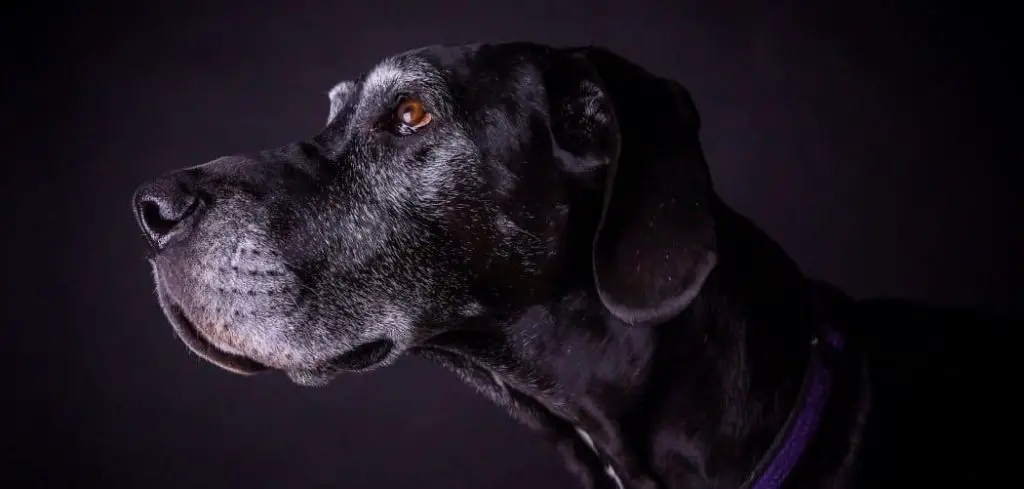When your dog suddenly stops eating, it can trigger alarm bells—especially if they were previously enthusiastic about meals.
We outline the common reasons why your dog is suddenly not eating, what you can do at home, and when to seek veterinary help.
Why Is My Dog Suddenly Not Eating?
A sudden loss of appetite in dogs can be caused by illness, pain, anxiety, or a recent change in their environment. It might stem from gastrointestinal issues, dental pain, infections, or emotional distress.
Some dogs stop eating due to medication side effects, while others react to dietary changes or stress. Even the weather can play a role in reducing appetite, especially during extreme heat.

Dog Suddenly Not Eating: Common Causes
Gastrointestinal Upset
Stomach problems are a leading cause of sudden food refusal.
Dogs with nausea, bloating, or diarrhea often avoid food instinctively. Common culprits include eating garbage, consuming toxic plants, or sudden diet changes.
If your dog is also vomiting, has diarrhea, or appears lethargic, gastrointestinal distress is likely—and should be addressed quickly.
Dental Pain
Mouth pain can make eating uncomfortable or even unbearable.
Issues like broken teeth, infected gums, or oral tumors often lead dogs to shy away from food.
You might also notice pawing at the mouth, bad breath, or drooling.
Because dental disease can worsen without treatment, it’s a critical consideration when appetite drops suddenly.
Read more: Dog Diarrhea and Not Eating (Causes and when to worry)
Infection or Illness
Infections from viruses, bacteria, or parasites can suppress a dog’s appetite.
Fever, fatigue, and body aches often accompany illnesses like kennel cough, leptospirosis, or parvovirus. Internal infections—especially in the kidneys, liver, or lungs—can also result in sudden disinterest in food.
Watch for symptoms like coughing, discharge, labored breathing, or vomiting alongside appetite loss.
Pain or Injury
Dogs in pain often stop eating, even if the issue isn’t immediately visible.
Arthritis, internal injuries, or sore muscles can discourage normal activities, including meals. If your dog is limping, reluctant to move, or unusually quiet, pain could be interfering with their eating.
Emotional Stress or Anxiety
Emotional triggers can strongly affect a dog’s appetite.
Major changes—like moving house, a new pet, or a family member’s absence—may cause temporary food refusal. Separation anxiety or loud noises (like thunderstorms or fireworks) can also lead to skipped meals.
Medication Side Effects
Some drugs can suppress appetite as a side effect.
Antibiotics, pain medications, or treatments for chronic conditions might cause nausea or gastrointestinal upset, reducing the urge to eat. If appetite loss begins shortly after starting a new medication, this could be the cause.
What to Do If Your Dog Is Suddenly Not Eating
Start by removing access to treats and table scraps to ensure your dog isn’t holding out for something tastier.
Offer bland, easy-to-digest foods like plain boiled chicken and rice. Make sure water is always available and encourage drinking.
Monitor for additional symptoms such as vomiting, diarrhea, bloating, or lethargy.
Try hand-feeding or warming your dog’s food slightly to enhance the aroma and appeal. Feeding in a quiet, stress-free area can also help encourage eating.
If your dog has missed more than one meal or is showing any signs of illness, contact your vet for a check-up.
When to Call or Visit Your Vet
If your dog hasn’t eaten in more than 24 hours, it’s time to contact your vet.
Seek immediate veterinary attention if your dog is also:
Vomiting repeatedly or has diarrhea
Showing signs of pain, whining, or limping
Sleeping excessively or acting withdrawn
Drooling, gagging, or pawing at the mouth
Bloated or uncomfortable when touched
Even if no other symptoms are visible, sudden appetite loss should always be taken seriously in puppies, senior dogs, or those with existing health conditions.
Read more: Dog keeps whining and not eating (What it means)
Key Takeaway
A dog suddenly not eating is always worth your attention—even if they seem otherwise fine.
From illness and pain to stress and medication, several factors could be behind the change. Try gentle, bland food and observe closely for other symptoms.
If in doubt, or if symptoms escalate, reach out to your veterinarian for prompt support and peace of mind.
